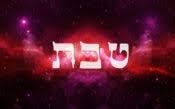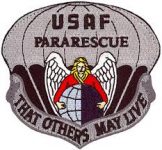Biblical Catholic: an Oxymoron
Where does the word Catholic come from? Is it in the Bible?
The word comes from Middle English catholik; from Greek katholikos (Strong’s 2526) and is defined as meaning both general and universal by both Strong’s1 and Dr. Berry’s2. Strong’s lists the word katholikos as coming from the word katholou (2527) meaning “on the whole, entirely;” which in turn is listed as coming from kata (2596) and olos (3650). Kata has a variety of meanings, but the most used is “according to;” while olos means “whole, all, complete.”
All of the roots (kata, olos, and katholou) are in the Bible in the regular text. However, katholikos is not.
According to Dr. Berry’s, katholikos is used seven (7) times, but Strong’s shows only two usages. Which 5 Strong’s discards, I do not know. The key to all of this is that none are in the actual text itself. All seven usages of the word3 are in the titles of Epistles. These titles would have been added by a scribe or assembly/church official when the Epistles were placed in the assembly/church manuscripts and not by the original Epistle writers. The seven Epistles that carry this word3 are James, 1 Peter, 2 Peter, 1 John, 2 John, 3 John, and Jude. It is translated in these titles as General.
Because this word is not used in the actual texts, and only in the titles, you can safely say that Catholic (katholikos) is not used in the Bible as originally written by its writers.
A word that is used, and therefore more appropriate, is paneguris. The meaning of this word is “universal companionship or general assembly.” It is used in Hebrews 12:23 referring to the Master’s true assembly. Also, in the same Scripture is the word ekklesia (translated in the KJV as church), which properly means assembly.
Ekklesia (assembly) is usually used to refer to the body of believers. Another word synagogue also means assembly or congregation, but it is more routinely used to refer to the building where the assembly meets. The word church on the other hand, which is used in the KJV, does not come from either word. It comes from Middle English chirche, from Old English cirice, from Late Greek kuriakon, from Greek kurios. Kurios means lord, master.
With this in mind, the meaning of Catholic Church is actually “Universal Master.” The Catholic Church, in fact, believes this is what it is here on earth. That all must answer to it and its rules are correct, even if they go against Scripture.
We know there is only one true Master, Yahoshua (Yeshua), and to follow any other is not Biblical. The meaning of the word oxymoron is “the combining of two contradictory words.” Therefore, we can see by all of the above, Biblical Catholic truly is an oxymoron.
Shalom, shalom.
1 Strong, James. The New Strong’s Expanded Exhaustive Concordance of the Bible. 2001. Red letter ed. Thomas Nelson: Nashville, TN. (p. 125 of Greek Dictionary section).
2 Berry, George Ricker. Greek-English Lexicon to the New Testament. 1981, 1998. World Publishing, Baker Books: Grand Rapids, MI. (p. 50).
3 The actual word used in the titles is Katholike (Kaqwlikh), a contextual version of katholikos. Endings of Greek words change in reference to the context of its surrounding words. Therefore, the end of katholikos (-kos) can change to -ke, -kon, or -kou. In these instances, it is ending in -ke because, as an adjective, its nouns are ending in -le. i.e. James = Iakobou Epistole Katholike (Iakwbou Epistwlh Kaqwlikh) = General Epistle of James.
First published 3-2006, edited 4-2018; © 2006, 2018 Odon Obadyah Ministries, Inc. and Min. Dr. Donald H. Garrett.
Return to Articles by Min. Garrett







